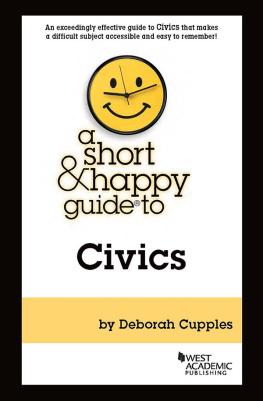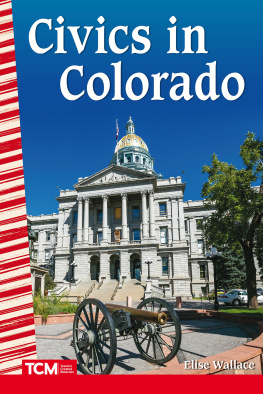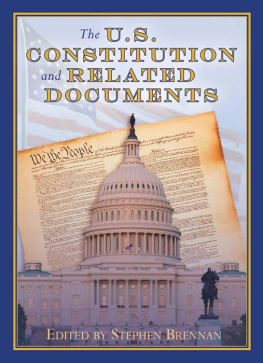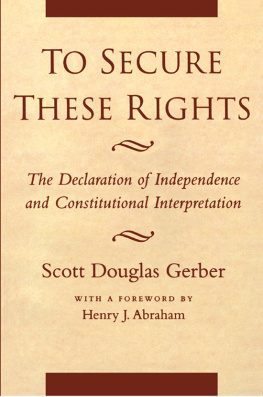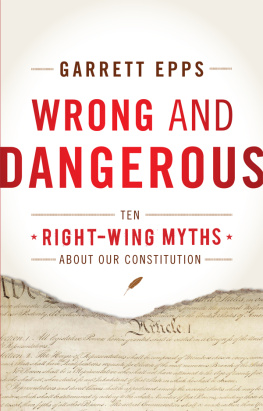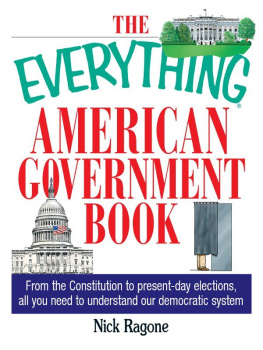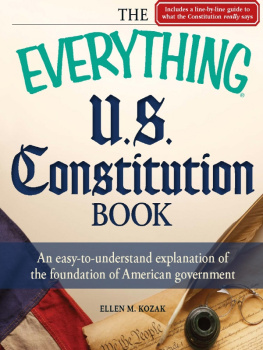West Academic Publishings Law School Advisory Board
Jesse H. Choper
Professor of Law and Dean Emeritus
University of California, Berkeley
Joshua Dressler
Distinguished University Professor Emeritus
Michael E. Moritz College of Law, The Ohio State University
Rene McDonald Hutchins
Dean and Joseph L. Rauh, Jr. Chair of Public Interest Law
University of the District of Columbia David A. Clarke School of Law
Yale Kamisar
Professor of Law Emeritus, University of San Diego
Professor of Law Emeritus, University of Michigan
Mary Kay Kane
Professor of Law, Chancellor and Dean Emeritus
University of California, Hastings College of the Law
Larry D. Kramer
President, William and Flora Hewlett Foundation
Jonathan R. Macey
Professor of Law, Yale Law School
Deborah Jones Merritt
Distinguished University Professor, John Deaver Drinko/Baker &
Hostetler Chair in Law
Arthur R. Miller
University Professor, New York University
Formerly Bruce Bromley Professor of Law, Harvard University
Grant S. Nelson
Professor of Law Emeritus, Pepperdine University
Professor of Law Emeritus, University of California, Los Angeles
A. Benjamin Spencer
Dean & Chancellor Professor of Law
William & Mary Law School
James J. White
Robert A. Sullivan Professor of Law Emeritus
University of Michigan

Civics
Deborah Cupples
University of Florida Levin College of Law
A SHORT & HAPPY GUIDE SERIES

The publisher is not engaged in rendering legal or other professional advice, and this publication is not a substitute for the advice of an attorney. If you require legal or other expert advice, you should seek the services of a competent attorney or other professional.
a short & happy guide series is a trademark registered in the U.S. Patent and Trademark Office.
2020 Deborah E. Cupples
Printed in the United States of America
ISBN: 978-1-64708-215-4
This book is dedicated to a couple who spent decades applying their knowledge of civics and law to protecting other peoples rights:
Prof. Fletcher Baldwin (January 5, 1933February 18, 2020)
and
Dr. Nancy Toman Baldwin
Acknowledgments
Many thanks to the following people for helping me with the editorial or publishing process:
Victorina Basauri Susan Carr Pam Chandler Christina Coronado Jared Coronado Cami Cupples Jon Harkness Louis Higgins James Kirkpatrick Catherine Kai Lewis Carol Logie | Carl J. Olsen Rod Olson Bill Reynolds Melissa Rider Laura Rosenbury Kendra Siler-Marsiglio Theresa Reid Margaret Temple-Smith Diane Tomlinson Kerry Travilla-Bown Sylvia Ward Schultz |
What You Will Get from This Book
The law comes from governments and affects almost everything we do in business, at our jobs, and in our personal lives. Its unavoidable.
Civics is the study of (1) citizens rights and duties and (2) governments structures and functions. A civics background is useful
- If you study law or work in the legal profession.
- If you work in government or politics.
- If you work in a government-regulated industry.
- If you just want to be better informed.
Through no fault of their own, many people didnt get an adequate civics background in high school or college. Results from an American Bar Association survey confirm that civics education among members of the public is lacking.
One result is that many people have trouble sorting out facts from fiction that they find on the Internet and other media. People who dont have a civics background are at a disadvantage compared to people who do have it.
Whatever your reason for wanting to improve your civics knowledge, this book can help you get up to speed on the basicsand pretty quickly.
You can also follow directions printed inside the cover of this book to take online quizzes to test yourself on what youve learned. These quizzes are designed as a learning tool.
.
Sources & Citations
Within chapter paragraphs, references to the U.S. Constitution are shorthanded, for example
Federal statutes, which are in the United States Code, are also shorthanded:
- 5 U.S. Code 21 (meaning Title 5, section 21).
References to other parts of the book follow this format:
A copy of the U.S. Constitution is in Appendix 1, toward the end of this book. A copy of the Declaration of Independence is in Appendix 2.
The citations in this book do not follow the Bluebook or any other prescribed format.
Table of Contents
Basic Concepts of American Law &
Government
A Short & Happy Guide to Civics

Chapter
Basic Concepts of American Law & Government
Rule of Law Versus Rule of Men
Under the Rule of Law , no one is above the law: not private individuals, not government officialsnot even the U.S. President.
The Rule of Law protects peoples rights partly by defining governments powers and limits. The idea is to prevent the arbitrary use of power so that laws are enforced similarly for all people, which promotes fairness and predictability.
Under the Rule of Men (or women or people), the people in charge decide what the law is and how its enforced, making things about as predictable as a Las Vegas slot machine. Under that system, a rulers buddy who stole $5 million might get away with it, while an ordinary person who stole a sandwich might do jail time.
The first use of the phrase Rule of Law is unclear, but its not a new concept. Over 2,000 years ago, Aristotle argued: It is more proper that the law should govern than any one of its citizens.
Fast forward to 1776, when Thomas Paine (one of Americas Founding Fathers) published a pamphlet called Common Sense, intended to persuade the colonies to declare independence from Britain. Paine wrote,
For as in absolute governments the King is law, so in free countries the law ought to be King ; and there ought to be no other.
Americas Founding Fathers set up our nation under the Rule of Law because they didnt like tyranny. They didnt want to live under a kingsor any dictatorsarbitrary or unfair use of power.
The Founding Fathers made that clear in the Declaration of Independence , where they bluntly listed reasons for declaring independence from Britain, including the Kings failures, cruelty, and abuses of power.
The Declaration of Independence is in Appendix 2 of this book. Its a fairly quick read, a lot shorter than the Constitution.
Levels of Government in the U.S.
In the United States, there are 3 basic levels of government:
(1)The U.S. (federal) Government.
(2)The 50 states governments.
(3)Local governments, like counties or cities.
Also, some Native American tribes have some self-governance powers, as do U.S. territories like Puerto Rico.

